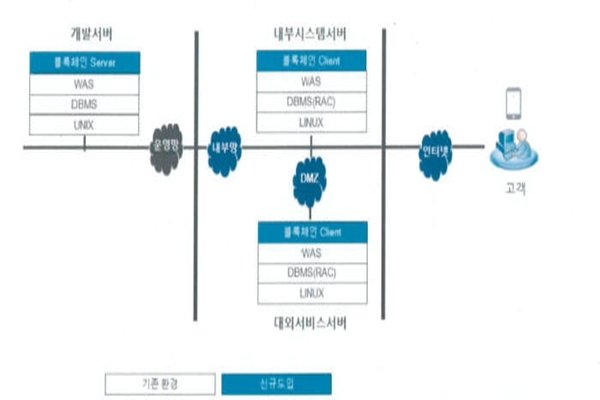Korea Electric Power Corporation (KEPCO, President Cho Hwan-ik) is planning to construct world’s first EV (Electric Vehicle) charging station that is applied with blockchain technology. This will be a project that utilizes blockchain, which is seen as one of technologies for Industry 4.0, as a platform that will operate charging stations in order to improve any inconvenience regarding charging of electric vehicles, operate management of charging infrastructures, and strengthen security. It is going to examine validity after going through variety of tests by end of this year and look into ways to apply it to entire EV charging stations.
According to KEPCO, Korea Electric Power Research Institute (KEPRI), and IT industries, KEPCO ICT Infrature and KEPRI have started on ‘establishment of blockchain service platform groundwork’ project and have formed a taskforce (TF). Blockchain, which is a technology that strengthens security, has all participants to share their ledgers. It encodes ledger transactions that occur every time and results are applied to following ledger transactions. It is impossible to forge since transactions are accumulated and recorded in an order of time and blockchain has non-repudiation function against past records.
According to their plan, which is obtained by The Electronic Times, not only are they going to use blockchain to manage data from charging stations but they are going to use blockchain on entire areas such as handling of foreign businesses of charging services and support for customers who use charging stations.
They are planning to use open-type blockchain technique to manage inside Big Data as well as to certify data from charging stations.
“Besides EV charging stations, we are also looking into introducing blockchain to many areas such as Big Data platform.” said a representative for KEPCO ICT Infrature. “According to expansion of supply of electric vehicles, we are currently carrying out pilot projects that apply blockchain to management of demands and P2P.”

First they are going to create an operation system for EV charging service that is based on blockchain. When EV charging stations that are applied with blockchain are operated, user certification and every data that is related to charging, process, and registration of information regarding reservations for charging stations can be simplified. Security will be strengthened as well.
KEPCO is also going to manage charging stations and chargers, information on charging infrastructures, information on members, and information on fees for businesses as blockchain ledgers. Its pilot projects that are currently in progress are design of ledger that registers variety of different data and makes handling easy, business handling module called nodal handler that handles different data such as reservation, businesses, certifications, amount of charging, and cost, formation of blockchain network that installs blockchain client to servers that handle businesses and servers that support customers, charging service portal that is composed of membership, user function, and administrator function, blockchain API that links current systems with block chain, and comprehensive test that connects entire systems.
“Along with pilot projects regarding charging stations, we are planning to apply blockchain to electronic delivery system.” said a representative for KEPCO. “We are also looking into ways to expand block chain as a platform that is applied to all KEPCO by grafting businesses, electronic money (energy coin), and wallet services.” By applying new blockchain technologies to electric vehicles and EV charging businesses, they are going to create separate standard models and export new models.
According to Ministry of Environment, there are currently 11,767 electric vehicles in South Korea and 1,050 fast chargers and 100,30 slow chargers. As competitions for development of electric vehicles are becoming more deepened globally, competitions for establishment of charging infrastructures are happening to resolve any inconvenience regarding EV charging. KEPCO is planning to install 500 fast chargers at 300 open-type charging stations by investing $15.7 million (18.0 billion KRW).
KEPCO is also planning to apply expand its home charging infrastructure, which establishes charging infrastructures at 4,000 apartment complexes at the most, and flagship charging infrastructures that are linked to restaurants and service stations by investing $69.8 million (80.0 billion KRW).
Staff Reporter Gil, Jaeshik | osolgil@etnews.com & Staff Reporter Cho, Junghyoung | jenie@etnews.com
